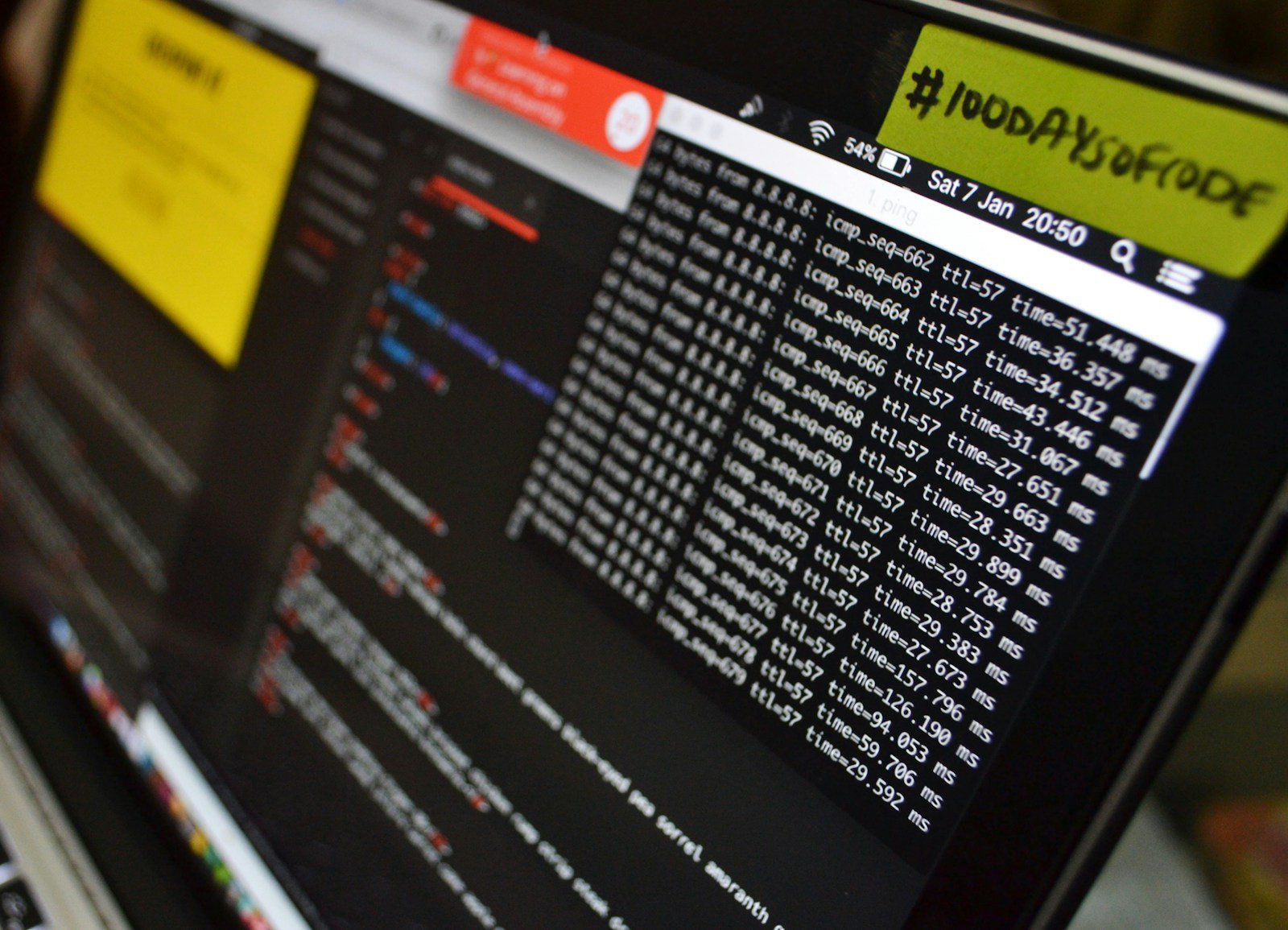Keeping computers safe from threats has become more important than ever for businesses. Viruses, hackers, and other dangers can harm company data and systems if left unprotected. The best endpoint protection software shields your computers, phones, and other devices from these risks while being easy to use and manage.
As more companies move their work online, they need strong security tools that work well together. These tools must catch threats quickly and not slow down work. Top protection software now uses smart tech to spot odd behavior and stop attacks before they cause damage.
1) SentinelOne Singularity
SentinelOne Singularity stands out as a top-tier endpoint protection solution in 2025. This platform uses advanced AI to protect computers and devices from cyber threats.
The system works by uniting endpoint, cloud, identity, and data protection into one seamless experience. This integration helps businesses manage security more easily across their entire network.
What makes SentinelOne special is its autonomous approach. The software can detect and respond to threats without needing human intervention all the time.
Real-time monitoring is a key feature of the platform. It watches for suspicious activities and can stop attacks before they cause damage.
The Singularity Endpoint Security solution offers quick response times when threats are found. This speed helps limit the impact of potential breaches.
Security teams benefit from SentinelOne’s AI-powered tools. The platform includes generative AI capabilities that make security operations more efficient.
Another strong point is the behavioral analysis system. Instead of just looking for known virus signatures, it watches how programs act to spot harmful behavior.
Companies using SentinelOne can see what’s happening across their network through a single dashboard. This visibility helps them manage security risks better.
Gartner reviews show that many businesses trust this platform for their endpoint protection needs. Users often praise its powerful protection and ease of use.
The platform also includes tools to fix problems after they’re found. This helps companies get back to normal operations quickly after a security incident.
2) CrowdStrike Falcon
CrowdStrike Falcon stands out as a top-tier AI-native cybersecurity platform designed for the XDR era. It offers a complete solution that stops breaches while reducing complexity for organizations of all sizes.
The platform runs with minimal system impact, which is a key advantage for busy networks. Users don’t experience slowdowns while the protection works in the background.
What makes Falcon special is its single-agent approach. Rather than installing multiple security tools, companies get endpoint protection, detection, and response through one lightweight agent.
Falcon uses advanced AI to spot threats before they cause damage. The system learns from millions of daily events to identify new attack patterns quickly.
Customer reviews on Gartner praise Falcon as “one of the best endpoint protection solutions available.” Many highlight its effective threat hunting abilities and ease of use.
The cloud-based delivery model means updates happen automatically. There’s no need for IT teams to manually patch or upgrade the software.
CrowdStrike backs its technology with world-class threat intelligence. Their security experts track hackers worldwide and feed this knowledge into the platform.
For businesses concerned about identity protection, Falcon extends beyond endpoints to secure cloud environments and user identities. This creates a more complete security shield.
The management console gives security teams a clear view of their protection status. Threats appear in real-time with actionable information for quick responses.
3) Microsoft Defender for Endpoint
Microsoft Defender for Endpoint serves as a complete security platform for businesses. It focuses on protecting all company devices from cyber threats.
This tool uses AI to spot and stop attacks before they cause harm. It works on Windows, Mac, Linux, and mobile devices, making it flexible for many companies.
What sets Defender apart is how it fits with other Microsoft products. Companies already using Microsoft 365 find it easy to add this protection to their setup.
The system watches for unusual behavior on devices. When it spots something strange, it can take action right away to protect your data.
Many IT professionals now rank Defender as one of the best endpoint security solutions available. This marks a big change from past years when Microsoft’s security tools weren’t as strong.
Defender helps companies strengthen their protection against modern threats. It uses smart technology to keep devices safe while giving IT teams clear information.
The platform doesn’t just block known viruses. It looks for new threats by checking how programs act on your system. This helps catch even new or unknown attacks.
For large companies, Defender offers ways to manage all devices from one screen. This makes it easier to keep track of security across the whole business.
Defender has earned its spot among trusted security options. It works well for companies of different sizes looking for solid protection without complex setups.
4) Sophos Intercept X
Sophos Intercept X stands out as a top choice for endpoint protection. It combines traditional security methods with modern approaches to stop threats before they can harm your systems.
This solution is rated as one of the best endpoint security options by PCMag. It earned this position by offering strong protection against a wide range of cyber threats.
Sophos uses advanced technology to block most attacks automatically. Their system can stop threats before they need human attention to fix them.
The software works well for both endpoints and servers. This makes it a good fit for businesses of all sizes that need to protect different types of devices.
One key strength is its ability to provide unmatched protection against advanced attacks. Companies can feel confident that their systems have strong defenses against the latest threats.
Sophos has received industry recognition for its quality. It was named Best Endpoint Security, showing that experts value its protection features.
The product takes what worked well in past security approaches and adds new strategies. This mix helps it stay effective against both old and new types of attacks.
For businesses looking for complete protection, Sophos also offers managed detection and response services. These services add human experts to watch over your security.
5) Bitdefender GravityZone Business Security
Bitdefender GravityZone Business Security offers top-tier protection for companies seeking robust endpoint security. This solution has earned significant recognition in the industry, winning the AV-TEST Award 2023 for both Best Protection and Best Performance in the business users category.
The platform uses a layered next-gen approach that combines prevention, detection, and blocking capabilities. This multi-faceted strategy helps businesses defend against various cyber threats effectively.
Small and medium businesses particularly benefit from GravityZone’s protection features. The system works to stop threats before they can impact company operations, saving time and resources.
PCMag ranks Bitdefender GravityZone among its top tested picks for hosted endpoint protection. This recognition further confirms its standing as a leading security solution.
The Business Security version offers core protection while GravityZone Premium Security provides more advanced features. Companies can choose the tier that best suits their security needs and budget.
GravityZone’s management console allows IT teams to control security across all endpoints from one place. This centralized approach makes security management simpler and more efficient.
The software runs with minimal impact on system performance. This means computers remain fast and responsive while still being protected from threats.
Updates happen automatically, keeping protection current against new threats. This hands-off approach reduces the burden on IT staff while maintaining strong security.
6) F-Secure Elements
F-Secure has rebranded its business security offerings as WithSecure Elements, though you might still see both names used. This endpoint protection solution stands out for its balance of powerful features and user-friendly design.
The platform offers strong protection for both Windows and Mac computers, making it versatile for mixed-device environments. Its resource-light approach means it won’t slow down systems while still providing robust security.
One key advantage is its built-in patch management functionality. This helps businesses keep software updated against the latest threats without needing separate tools.
F-Secure Elements consistently performs well in independent tests. PCMag named it one of their top picks for endpoint protection, highlighting its effectiveness against modern threats.
The management console gives admins good control over security policies. It allows for customization based on different user groups and security needs within an organization.
While reviewers note some minor interface annoyances, these are outweighed by its excellent threat detection capabilities. The system effectively blocks malware, ransomware, and other emerging threats.
F-Secure Elements uses cloud-based scanning alongside local protection. This approach helps catch threats quickly while minimizing the impact on computer performance.
The pricing structure offers flexibility for different business sizes. Companies can select the specific protection modules they need rather than paying for unused features.
7) Kaspersky Endpoint Security
Kaspersky Endpoint Security offers protection for businesses of all sizes. It guards Windows, macOS, Linux, mobile devices, and servers with a single solution.
The software uses cloud intelligence to fight against modern threats. It specifically targets ransomware, exploits, and other advanced cyber dangers that businesses face today.
Companies can choose between on-premise or cloud-based versions. This flexibility helps match different business needs and IT setups.
For small to medium businesses, Kaspersky offers Endpoint Security Cloud with built-in EDR (Endpoint Detection and Response). This version stays up-to-date automatically to fight online threats.
Windows users benefit from specific protections designed for the operating system. These features help keep Windows computers safe from the latest threats.
Kaspersky has earned recognition in the industry. PCMag lists it among the top tested picks for hosted endpoint protection software.
The platform does more than just protect endpoints. It also secures web and email traffic, creating a wider safety net for business operations.
Kaspersky’s interface is designed to be user-friendly. This makes it easier for IT teams to manage security across the organization without needing specialized training.
8) ESET PROTECT Enterprise
ESET PROTECT Enterprise offers powerful protection against malware, exploits, and ransomware. This solution stands out for its comprehensive approach to cybersecurity for businesses.
The platform includes ESET EDR (Endpoint Detection and Response) and Cloud Sandbox Analysis. These features help companies spot threats quickly and respond to them before damage occurs.
One key benefit is full network visibility. Security teams can see what’s happening across all devices, making it easier to spot unusual activity.
ESET ranks among PCMag’s top picks for endpoint protection. This recognition highlights its reliability in the competitive security software market.
The solution fits well into modern endpoint protection strategies. It not only prevents attacks but also detects and fixes security issues fast.
ESET offers protection for various systems including Windows, Android, Mac, and Linux. This makes it a good choice for companies with different types of devices.
Companies can manage all security from one place. The central dashboard lets admins see threats, update protection, and respond to issues without switching between programs.
The enterprise version aims at larger businesses with complex needs. It scales well as companies grow and add more devices to their networks.
9) Cisco Secure Endpoints
Cisco Secure Endpoints is a top choice for businesses looking for strong endpoint protection. It was formerly known as AMP for Endpoints and offers cloud-delivered next-generation antivirus services.
This solution stands out with its advanced threat detection capabilities. It spots and stops threats before they cause damage to your systems. The software works well as a standalone product but also fits into bigger security setups.
Companies benefit from its detailed analytics that show exactly what’s happening on their network. The system uses automated threat response, which means it can take action against threats without waiting for someone to notice them.
Cisco designed this product to work as both an Endpoint Detection and Response (EDR) solution and part of a larger security framework. This flexibility helps businesses of different sizes.
For those wanting integration with other tools, Cisco offers SecureX. This platform adds free features like Security Orchestration and Device Insights that make the whole system more powerful.
The software also includes extended detection and response (XDR) built in. This means it can spot complex threats that might slip past simpler security tools.
IT teams appreciate how easy it is to manage Cisco Secure Endpoints. The control panel gives a clear view of all protected devices and any security issues that need attention.
10) Rippling + SentinelOne
Rippling and SentinelOne have joined forces to create a powerful endpoint security solution. This partnership combines Rippling’s workforce platform with SentinelOne’s top-rated protection technology to keep company devices safe from threats.
SentinelOne was named a leader by Gartner in its Magic Quadrant for endpoint protection platforms in 2021. This recognition shows the quality and effectiveness of their security approach.
The partnership offers autonomous endpoint security that works without constant human monitoring. This means threats can be caught and stopped quickly, before they cause damage to your systems.
Rippling’s integration with SentinelOne creates a complete protection system that businesses can manage from one place. Companies don’t need to juggle multiple security tools or dashboards.
The solution uses AI and machine learning to detect threats more effectively. These technologies help spot unusual patterns and potential attacks that traditional security might miss.
Setup is simple through the Rippling platform. IT teams can deploy SentinelOne protection to all company devices with just a few clicks, saving time and reducing the chance of setup errors.
Regular security updates happen automatically. This keeps protection current against new threats without IT teams needing to manually update each device.
The combined solution fits businesses of all sizes but works especially well for growing companies.
Understanding Hosted Endpoint Protection
Hosted endpoint protection is a cloud-based security solution that protects computers, phones, and other devices from cyber threats. Unlike traditional security software, it runs mostly in the cloud rather than on your devices.
This approach offers several key benefits. Your IT team won’t need to install and manage software on each device. Updates happen automatically in the cloud, keeping protection current against new threats.
Think of it as a security guard that watches over all your business devices from a central location. When one device spots a threat, the system can quickly protect all other devices too.
Most hosted solutions include:
- Malware protection – Blocks viruses and other harmful software
- Threat detection – Finds suspicious activity on devices
- Central management – Controls all security from one dashboard
- Auto-updates – Keeps security current without manual work
These systems work well for businesses of all sizes. Small companies get enterprise-level protection without needing a large IT team. Larger organizations enjoy easier management across many devices.
The cloud approach also helps when employees work remotely. Protection follows devices wherever they go, not just in the office.
Endpoint security becomes more important as cyber attacks grow more complex. Hosted solutions offer strong protection that’s easy to use and maintain.
Key Features of Endpoint Security Software
Modern endpoint security solutions offer essential protections for business devices through advanced capabilities. These tools have evolved beyond simple antivirus to provide comprehensive protection against today’s complex threats.
Threat Detection and Response
Endpoint security software uses AI-powered protection to spot and stop threats before they cause harm. Most solutions now include:
- Real-time monitoring that watches for unusual activities
- Behavioral analysis to catch zero-day threats without needing signature updates
- Automated responses that contain threats instantly
These systems can detect malware, ransomware, and fileless attacks that traditional antivirus might miss. Many top products now use machine learning to improve detection rates over time.
The best solutions offer EDR (Endpoint Detection and Response) capabilities that track suspicious activities and provide tools for quick investigation. This helps security teams identify threats and respond faster than ever before.
Cloud-Based Management
Cloud management makes endpoint security easier to deploy and maintain across organizations of all sizes. Key benefits include:
- Centralized control through a single dashboard
- Remote deployment of security policies to all devices
- Automatic updates without IT intervention
- Real-time visibility across the entire network
Admins can manage security policies for thousands of endpoints from anywhere with internet access. This removes the need for on-site servers or complex infrastructure.
Cloud-based solutions also offer better scalability as businesses grow. Adding new devices takes minutes instead of hours. Most platforms provide firewall management and intrusion prevention through the same interface, simplifying security operations.
Many solutions now include cross-platform support for Windows, Mac, Linux, and mobile devices from a single console.
Integration with Existing IT Infrastructure
Effective endpoint protection solutions must work seamlessly with your current IT systems. The best software options offer flexible deployment methods and broad compatibility with existing hardware, operating systems, and security tools.
Compatibility Considerations
When selecting endpoint protection software, check if it works with your current operating systems. Top solutions like Bitdefender GravityZone and Sophos Intercept X support Windows, macOS, and Linux environments.
API connections are crucial for smooth integration. Modern security tools should connect with your:
- Identity management systems
- SIEM solutions
- Cloud services
- Network monitoring tools
Look for solutions that offer simple deployment options. Many now feature cloud-based management consoles that don’t need complex on-site setup.
Microsoft’s endpoint solutions work well with other Microsoft products, creating a unified security approach. This integration helps teams monitor and respond to threats faster.
The best tools also work with your existing security policies and compliance needs without forcing major changes to your workflows.
Frequently Asked Questions
Endpoint protection software plays a vital role in securing business networks from various threats. Many users have common questions about features, effectiveness, and selection criteria when shopping for these security solutions.
What are the top-rated endpoint protection solutions for enterprise-level businesses?
Several endpoint protection platforms stand out for enterprise environments. CrowdStrike Falcon offers robust threat hunting and real-time monitoring capabilities that large organizations find valuable.
SentinelOne Singularity is highly regarded for its AI-powered threat detection and autonomous response features. Many enterprises appreciate its minimal performance impact on endpoints.
Microsoft Defender for Endpoint has gained significant traction among businesses already invested in the Microsoft ecosystem. Its integration with other Microsoft security tools makes it a practical choice for many organizations.
How does endpoint protection enhance overall cybersecurity for small and medium-sized businesses?
Endpoint protection serves as the first line of defense against malware and other threats targeting employee devices. For small businesses with limited IT resources, managed endpoint solutions provide professional security without requiring in-house expertise.
These platforms monitor suspicious activities and block threats before they can spread throughout the network. This protection is crucial since SMBs often lack the advanced network segmentation found in larger companies.
Many solutions now include vulnerability management, helping identify and patch security gaps before attackers can exploit them. This proactive approach reduces the attack surface significantly.
What are the key features to look for in an effective endpoint security software?
Real-time malware detection and removal capabilities are essential for stopping threats as they appear. Look for solutions that use multiple detection methods, not just signature-based detection.
Cloud management options offer flexibility and easier deployment across distributed workforces. This feature has become increasingly important with remote work trends.
Third-party patch management helps keep all software updated, not just the operating system. Vulnerability detection identifies weak points before they can be exploited.
Endpoint detection and response (EDR) features provide visibility into suspicious activities and automated response options. These capabilities help security teams react quickly to potential threats.
Can endpoint protection software effectively prevent ransomware attacks?
Modern endpoint protection platforms can significantly reduce ransomware risks through behavior-based detection. These systems identify suspicious encryption activities typical of ransomware operations.
Rollback features in products like Sophos Intercept X can restore files after a ransomware attack, minimizing damage. This capability provides an extra layer of protection beyond just prevention.
No solution offers 100% protection, but comprehensive endpoint security combined with proper backup strategies greatly reduces ransomware risks. User education remains an important complementary measure.
How do endpoint detection and response (EDR) capabilities vary among leading security software?
CrowdStrike Falcon offers extensive EDR capabilities with detailed threat hunting and real-time monitoring. Its dashboard provides clear visualization of attack chains across the network.
Bitdefender GravityZone includes EDR features that balance automation with manual investigation options. This flexibility works well for organizations with varying security expertise.
Microsoft Defender for Endpoint integrates EDR with broader Microsoft security tools for comprehensive protection. The solution scales well from small businesses to enterprise environments.
SentinelOne provides autonomous EDR responses that can automatically isolate affected endpoints. This approach reduces response time during critical security incidents.
What factors should be considered when selecting an endpoint protection platform for home users?
Performance impact is crucial for home users who may have less powerful computers. Solutions should run efficiently without noticeably slowing down the system.
Ease of use matters significantly since home users typically lack technical expertise. Look for intuitive interfaces with clear notifications and simple configuration options.
Cost remains an important consideration for individual users. Many top vendors offer home versions at reduced prices compared to their business solutions.
Compatibility with existing software and hardware ensures smooth operation. Users should verify that the protection software works with their current setup before purchasing.







